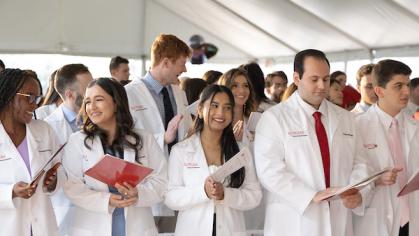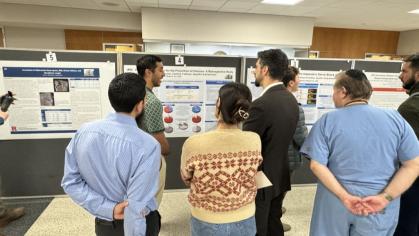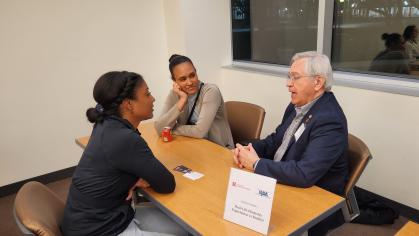True Confessions: Dental Students on Brushing, Flossing and the Horrors of Plaque
 From left, Jason Liang, Michael Israel and Siddhi Shah.
From left, Jason Liang, Michael Israel and Siddhi Shah.
We asked three Foresight Leaders to describe how their perspective on oral health has shifted since starting at RSDM and how they deal with the stereotypes and misconceptions surrounding dentists and dental school. Their answers will run in a two-part series this month and next.
It’s one of the more subtle changes that occur when you become a dental student –- a hyper-awareness of other people’s mouths, whether they’re friends with signs of gingivitis or strangers who, clearly, have not flossed for months, if not years.
Since starting dental school, second-year student Siddhi Shah will never look at plaque the same way again.
Shah, Class of 2018, finds herself noticing build-up she would have completely overlooked in the past, and sometimes having extreme reactions when she spots a particularly bad case.
After a visit to the mall recently, she was unable to focus on what the sales clerk was telling her. She was too horrified by the thick layers of plaque on his teeth and the alarming state of his gums, which had no “stippling,’’ a term she learned her last year at RSDM.
“I wanted to take an explorer and get in there or get some floss and floss it out for him. I wanted to take a picture of it and take it into perio,’’ she confesses.
Michael Israel watched old friends became suddenly self-conscious after he became a dental student. “Some of them have said that they feel like I’m analyzing their teeth,’’ said Israel.
When asked if they were correct, Israel admitted that it’s not something he does intentionally, but sometimes it happens anyway. “I can’t help but notice it more now,'' he says.
Since his first year at RSDM, friends have been asking Israel for oral healthcare advice. Some want to know if an electric toothbrush is better than a regular one. (Electric, he recommends). Others seek the truth about flossing. They ask me, ‘how important is it? I use a toothbrush and use rinses, isn’t that enough?’”
Unsurprisingly, Israel’s answer is no. “I say, if you’re only brushing you’re just getting three out of five surfaces clean. I tell them, at least get a water pic if you’re not going to floss. Something is better than nothing.’’
After starting dental school, Jason Liang began brushing his teeth after every meal. “I hate eating outside because I can’t brush and floss,’’ he says.
But he's learned in class that it’s best to wait 30 minutes after eating. “That’s because your enamel gets soft right after you eat,’’ he explains.
Liang, whose two sisters are dentists, can suddenly understand their shop talk over dinner. Recently, when they were discussing the challenges of fitting new patients with dentures, he could empathize.
Shah, whose older sister is a dentist, finds herself lapsing into dental lingo during conversations. Both refer to individual teeth by the numbers they learned in dental anatomy. “She’ll say, ‘You have something stuck between 8 and 9. And I’ll actually know what she means.’’



